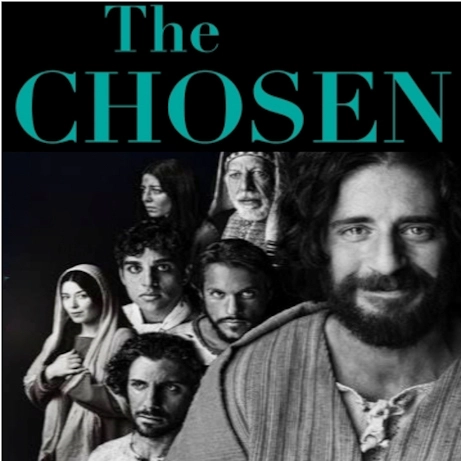Have you ever paused to consider the profound impact of Christianity, the transformative power, not just on individual lives, but on the very fabric of societies and cultures throughout history? It’s a story far richer and more dynamic than many realize, extending beyond Sunday services and into the bustling heart of our communities. I’ve recently been on a journey of discovery, unearthing insights that have profoundly reshaped my understanding of faith’s global reach and its powerful, transformative nature. From ancient cities to modern urban centres, these revelations paint a picture of christianity as a constant transformative power, it’s alive, consistent, revolutionary, and deeply interwoven with the human story.
The City: Where Faith Takes Root and Flourishes
Imagine a city, a vibrant melting pot of dreams, struggles, and innovations. It’s in these urban landscapes that some of the most significant stories of faith have taken hold. True spiritual movements aren’t born in isolation; they emerge from and thrive within communities, especially in these urban centers. This perspective shifts our focus from an individualistic faith to a communal and strategic approach that transforms a society.
The church, at its core, isn’t just a building; it’s a dynamic force called to nurture discipleship and ignite transformation within its surrounding community. Discipleship is basically a continuous system of learning that aims for transformation both within a person and their environment as well. Christianity is more than just attending services; it’s about actively shaping lives and, by extension, the very fabric of society. When people encounter the tangible truth and power of faith, transformation happens. Think about it: powerful personal testimonies of divine intervention, aren’t those the stories that truly resonate and strengthen belief? They make the abstract real, demonstrating a living God at work. Think about a person you once knew and over a period of encountering Christ, their lives have completely transformed and their thinking reshaped. Now think of a community that has completely changed on account of Christianity, I know a few examples, have you ever gone to Kijabe town in central Kenya? Or Mukuku town in western Kenya, or Mumias town around St. Mary’s hospital or Kaimosi town in western Kenya? I am just mentioning a few examples of real life transformation of lives within urban settings. Ultimately, faith communities are divinely purposed agents of change, change that is not only visible in people but in the environment as well.

Battling for Belief: A Generational Journey
But genuine transformation rarely comes without its challenges. Every city, every community, has its “strongholds”—those deep-seated issues, spiritual or societal, that resist positive change. Confronting these often means facing opposition, a reality that prepares us for the spiritual and practical battles ahead.
And here’s a crucial insight: dismantling these strongholds isn’t a quick fix. It’s often a generational process, a long-distance race rather than a sprint. There are ills within our societies for instance corruption, nepotism, unequal distribution of wealth, poverty and many more. To see the transformation of these calls for patience, perseverance, and a profound commitment to developing future leaders who will carry the torch forward. It doesn’t happen instantly but gradually. We need a message that carries genuine power, the transformative power, one that inspires deep conviction and is backed by compelling stories and belief that life is not just about me, myself and I. The strong belief that life is about the future generations and that whatever I do now has an impact in the next generation. This is a story of sacrifice and giving ourselves fully for the sake of the next generation just like our Lord Jesus did and the disciples that followed, and the many missionaries that encountered adversities to ensure that there is a hospital in your town or a school or electricity near your home. In today’s interconnected world, sharing these stories requires innovation. How can we leverage modern tools like social media or engage within workplaces to reach more people? It’s about finding creative avenues for connection. Ultimately, genuine impact flows from unwavering conviction and a spirit of selfless sacrifice.
Africa’s Enduring Christian Legacy
Now, let’s talk about history, specifically a history often misunderstood. Have you ever been told that Christianity is a foreign religion in Africa? Prepare for a profound paradigm shift. The truth is, Christianity flourished in Africa long before it took widespread root in Europe. This isn’t just a historical footnote; it’s a powerful reclamation of heritage, revealing Africa’s deep, ancient, and often overlooked role in shaping the Christian faith. Do you know that the person who helped Jesus to carry the cross was an African? Do you know that among the first people to spread Christianity after the death of Jesus were Africans ( Simeon called Niger, Lucius of Cyrene)?
Do you know that among the first churches to be established in the world is The Coptic Orthodox Church which has its roots in Africa?
Christianity isn’t about erasing existing cultures but integrating with them. It’s an “incarnational” faith, one that gently permeates, affirming what is good and Godly within a culture and redeeming what can be transformed to align with divine principles. Think about deeply held cultural values, like the profound importance of family within our cultures or the belief in life beyond the physical that exist in many traditional African religions or cultures. Christianity doesn’t negate these; it gives them deeper meaning and affirms their inherent value. It expands understanding, offering a richer context for existing beliefs.
Indeed, the transformative power of faith isn’t confined to personal spiritual awakening. It has profoundly influenced civilizations, sparking advancements in education, industry, and urban development that shaped the modern world. And when we look at the foundational moments of Christianity, from the early outpouring of spiritual power to pioneering missionary efforts and the very formation of theological thought, African voices and contributions were undeniably present and significant. I encourage you to read church history. Africans were not passive recipients; we were active architects. This also highlights a crucial point: genuine faith cannot be forced. Where belief is imposed, it rarely flourishes authentically.
The Transformative Power
These insights have been more than just enlightening; they’ve ignited a fresh understanding and passion within me. They paint a picture of Christianity as the transformative power that continues to transform lives and societies. It’s not just about prayer and attending Sunday service, it is about the deep desire to see transformation within a society that is deeply founded in Godly principles that upholds love, peace and other fruits of the spirit. It’s a call to engage more deeply, not just individually, but within vibrant communities, seeing our cities as fertile ground for profound spiritual impact and desired change for society.
How do you see the transformative power of Christianity at work in the world today? Share your thoughts in the comments below!
Read also WHY GIVING IS AMUST


